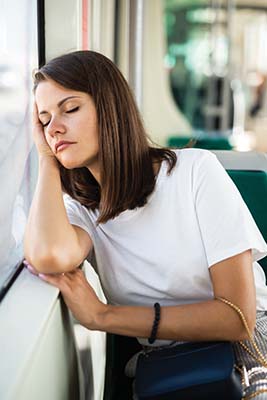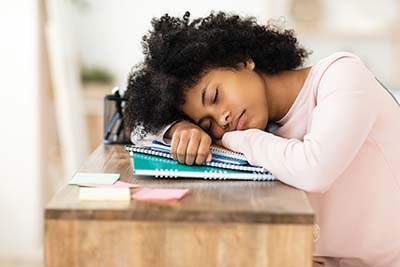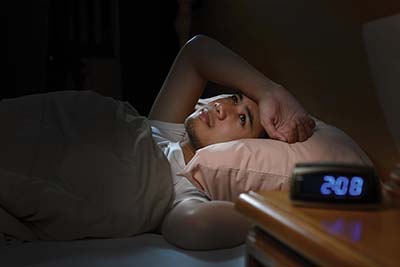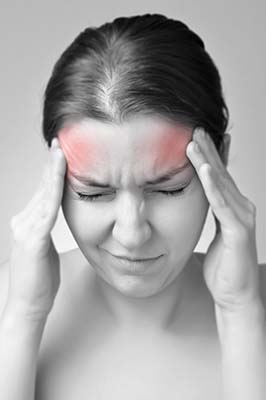
Menopause can cause changes in sleep patterns that can leave women waking more frequently during the night. And those disruptions can impact mood and metabolism, according to Hadine Joffe, executive director of the Connors Center for Women’s Health and Gender Biology, director of the Women’s Hormone and Aging Research Program and the Paula A. Johnson Professor of Psychiatry in the Field of Women’s Health at Brigham and Women’s Hospital and Harvard Medical School.
At a plenary symposium at the North American Menopause Society annual meeting Sept. 22-25, Joffe explained how waking after sleep onset (WASO) is associated with multiple sleep stage transitions and cortical arousal, even with normal total sleep time.
“When we see these women with a reasonable amount of sleep, but their sleep is disrupted and the (sleep) quality is poor, their daytime mood, well-being and metabolism may be affected,” Joffe said in Sept. 29 article on Healio. “The public health message to get enough sleep is out there and it is hugely important, but we have not yet attended to the priority for women across menopause: Fix your WASO. This is the most important problem for the midlife women we take care of.”
According to data from the Study of Women’s Health Across the Nation, nutrient utilization data shows that even if a woman maintains a normal diet, sleep fragmentation and estradiol withdrawal shift metabolism from fat to carbohydrate oxidation, contributing to weight gain even with a normal total sleep time.
“When we are trying to understand the central role of menopause-related sleep disruption in midlife, it is all about interruption and fragmentation,” Joffe said.
Hong Kong Bus Tour Takes Riders
on the Road to Rest

Anyone who has dozed off while riding in the car knows how the vibration and white noise of a moving vehicle can lull you to sleep. A tour company in Hong Kong has taken that idea to the next level with their sleep tour bus.
In September, Ulu Tours launched a five-hour ride to nowhere on its double-decker bus. The tour is designed to give riders a chance to snooze, according to an Oct. 21 NPR article.
“When we were brainstorming new tours, I saw a social media post from my friend saying that he was stressed out by his work, he couldn’t sleep at night,” Kenneth Kong, Ulu’s marketing and business manager told the Associated Press. “But when he was traveling on the bus, he was able to sleep well. His post inspired us to create this tour that lets passengers just sleep on the bus.”
Tickets range from $13 to $51, depending on seating, and riders get a goodie bag with eye masks and earplugs to help them catch some zzz’s. And according to Ulu, the inaugural ride to dreamland sold out.
How to Prioritize Sleep for Teens

Teens often don’t get enough shut-eye for a variety of
reasons, according to an article on CNN in October. One major culprit? Circadian rhythm — the internal clock that tells the body when to sleep and when to wake — shifts during early adolescence, disrupting sleep patterns.
According to a 2016 study published by Behavioral Sleep Medicine, parents who prioritize and set consistent sleep habits in the home tend to have teens who sleep better.
One major way to achieve that is setting and sticking to consistent sleep schedules — that includes not only bedtime, but also wake times, as well. Limiting screen time before bed matters, too. While experts say watching television across the room before bed isn’t particularly detrimental to sleep, a light source less than 18 inches from a teen’s face can make it more difficult to fall asleep. So, phones and tablets should be put away before bed.
Leading by example matters, too. If parents prioritize their own sleep, their children are more likely to follow their lead.
Stressed? Tips to Help
You Sleep Better

We’ve all been there — as soon as your head hits the pillow, your brain kicks into overdrive, making falling asleep nearly impossible. According to the American Academy of Sleep Medicine, as many as 35% of Americans suffer from insomnia. How can you quiet those racing thoughts and get a good night’s sleep? Obviously, the right mattress helps, but these expert tips reported in Better Homes & Gardens in October can help, as well.
• Acknowledge your stress.While ignoring stressful thoughts might seem like the right move, validating those thoughts and redirecting them works better. This technique, pioneered by Richard Schwartz, commonly is used in therapy and meditation to manage stress.
• Take notes. If you know nagging thoughts won’t let you rest, write them down. Keeping a pen and notepad next to the bed can be a good way to record and quiet those intrusive thoughts.
• Schedule time for stress. A tired brain isn’t a logical brain, so mulling problems late at night is often counterproductive. Instead of letting issues steal your sleep, plan to tackle them when you’re fresh.
• Don’t work in bed. While cozying up in bed with your laptop may be tempting, working where you sleep can give your brain the message that the bedroom can be a stressful environment, disrupting your sleep.
• Get out of bed. Sure, it may feel counterintuitive, but if you’re wide awake, get up. Lying in bed restless will cause your brain to associate wakefulness with being in bed, potentially disrupting future sleep patterns.
Study Shows How Migraines Affect Sleep

Migraine sufferers — both adults and children — may get less deep REM sleep time than people who don’t have migraines, according to a study published in the Sept. 22 online issue of Neurology, the medical journal of the American Academy of Neurology. The meta-analysis also found that children with migraines got less total sleep than their peers, but they took less time to fall asleep.
“Do migraines cause poor sleep quality or does poor sleep quality cause migraines?” said study author Jan Hoffmann of King’s College London in the United Kingdom and a member of the American Academy of Neurology. “We wanted to analyze recent research to get a clearer picture of how migraines affect people’s sleep patterns and the severity of their headaches. That way, clinicians can better support people with migraines and deliver more effective sleep treatments.”
Researchers included 32 studies involving 10,243 people for the meta-analysis. Participants completed a questionnaire to rate their sleep quality, and for many of the studies, people took part in an overnight sleep lab used to diagnose sleep disorders. This sleep study recorded brain waves, the oxygen level in the blood, heart rate and eye movement.
When researchers looked at the studies, they found adults and children with migraines had less REM sleep as part of their total sleep time than their counterparts. REM sleep is important for learning and memory function.
When it came to children with migraines, researchers found they had less total sleep time, more wake time, and shorter time for sleep onset than those without migraines. Hoffmann said children with migraines may fall asleep more quickly than their peers because they might be sleep deprived.




